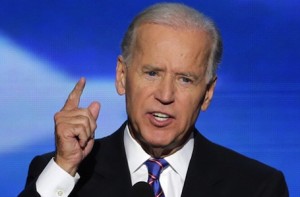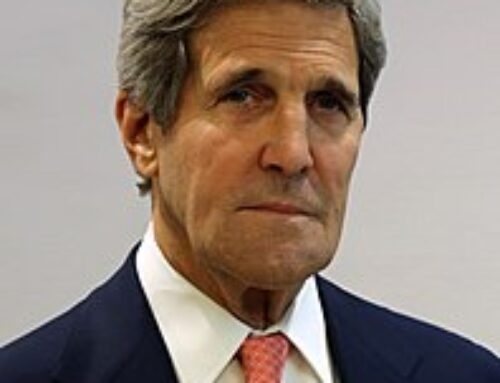 Lately the news has been overflowing with political demonization. The perpetrators have mostly been liberals, though conservatives have on other occasions shown considerable prowess in the practice.
Lately the news has been overflowing with political demonization. The perpetrators have mostly been liberals, though conservatives have on other occasions shown considerable prowess in the practice.
Here is a sampling of the current attacks by liberals, with key words in bold:
“You cannot negotiate when they take hostages and when they extort, period.” Sen. Chuck Schumer (D-N.Y.)
“What we’re not for is negotiating with people who have a bomb strapped to their chest.” Senior White House Adviser Dan Pfeiffer
“They refuse to pass a budget unless I let them sabotage Obamacare, something they know is not going to happen.” President Barack Obama
“…The anarchists have taken over. They’ve taken over the House, now they’re here in the Senate.” Senate Majority Leader Harry Reid (D-Nev.)
“[They] need to act like adults not like squealing political pigs” and [saying] “if you don’t accept what we demand, we’re going to blow up the place.” Sen. Dick Durbin (D-Ill.).
“Or we can finally call these people what McConnell once gleefully acknowledged they are: hostage takers, unrepresentative of the once-proud Republican Party and unfit to govern the greatest nation on Earth.” Former Obama speechwriter Jon Favreau.
“I call them ‘legislative arsonists.’ They’re there to burn down what we should be building up in terms of investments and education and scientific research and all that it is that makes our country great and competitive.” House Minority Leader Nancy Pelosi (D-Calif.)
“The only phrase that describes it is political terrorism.” Former Vice President Al Gore (D)
“That’s a scandal — those people are guilty of murder in my opinion.” Sen. Angus King (I-Maine)
“So when you [Republicans] were on the jihad against Americans’ access to health care, shutting down the parks wasn’t a problem [and] shutting down NIH wasn’t a problem.” Representative George Miller (D-Calif.)
If we were to take such diatribes at face value, as their authors no doubt would like us to do, we would surely picture conservatives as a thoroughly unscrupulous lot intent on destroying all that is good and honest and decent in America.
But with a bit of perspective, we can see the language for what it is, a collection of overexcited metaphors used solely for political purpose.
An anecdote told by G. K. Chesterton can help us gain such perspective. While walking through a crowded room in a political club, he noticed “a bald gentleman with a beard . . . reading something from a manuscript in a low voice.” The din in the room made it impossible to understand what he was saying. Nevertheless, the next morning a newspaper carried the headline “Lord Spencer Unfurls the Banner,” and went on to describe, as Chesterton put it, how the Lord “had blown the trumpet for Free trade and how the blast would ring through England and rally all the Free Traders.”
The experience led Chesterton to take the hyperbole of newspapers with the proverbial grain of salt. That is exactly the way we should react to the overheated rhetoric of our politicians.
The demonization of conservatives by liberals is doubly ironic. First, the demonizers are the same people who constantly complain about the lack of civility in America and the desperate need for tolerance. Secondly, as political insiders tell us, the demonizers often maintain cordial relations with the very people they so viciously attack. In some cases, they are good friends with them.
How can that be, you ask? How can self-proclaimed champions of all that is good and right fraternize with people they accuse of being kidnappers, murderers, arsonists, extortionists, and terrorists? The answer is, the same way actors can commit mayhem on one another for hours and then go out for a drink together when the director says, “cut.”
Political discourse is not exactly like the delivery of lines in a fictional drama, of course. The former may to some extent reflect genuine convictions. Still, the two have a lot in common.
Whenever we hear politicians of either party excoriating those on the other side of the aisle, we should understand that they are merely demonstrating their toughness to their base, and that a more accurate and honest expression of their view would be, “We disagree with them about the issue.”
Copyright © 2013 by Vincent Ryan Ruggiero. All rights reserved



